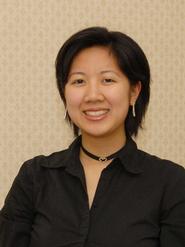
Robin Wong, a candidate for May graduation from Hamilton College, has been awarded a Fulbright Grant to China. She plans to study attitudes toward aging in China to investigate the relationship between age identity, life satisfaction and positive mental health. In her proposal Wong says, "Maintenance of an identity younger than one's actual age has been correlated to positive well-being in the U.S. but may bit hold true for adults in a collectivist culture such as China. Both explicit and implicit measures are necessary for a more complete view of age identity."
Wong, a psychology and Chinese major at Hamilton, participated in the Associated Colleges in China program in 2005, and studied at the City University of Hong Kong in 2006. She is a member and past secretary of the Asian Cultural Society at Hamilon and member and past treasurer of the Tae Kwon Do club. She was elected to Phi Beta Kappa in 2006. In 2004 she received the Award for Excellence in Chinese Language and Literature at Hamilton.
The purpose of the Fulbright Program is to increase mutual understanding between the people of the United States and other countries through the exchange of persons, knowledge and skills. The program is designed to give recent college graduates opportunities for personal development and international experience.
It offers invaluable opportunities to meet and work with people of the host country, sharing daily life as well as professional and creative insights. The program promotes cross-cultural interaction and mutual understanding on a person-to-person basis in an atmosphere of openness, academic integrity and intellectual freedom. The primary source of funding for the Fulbright Program is an annual appropriation made by Congress to the Department of State. The U.S. Student Program awards approximately 900 grants annually and currently operates in more than 140 countries worldwide.
Posted April 10, 2007
